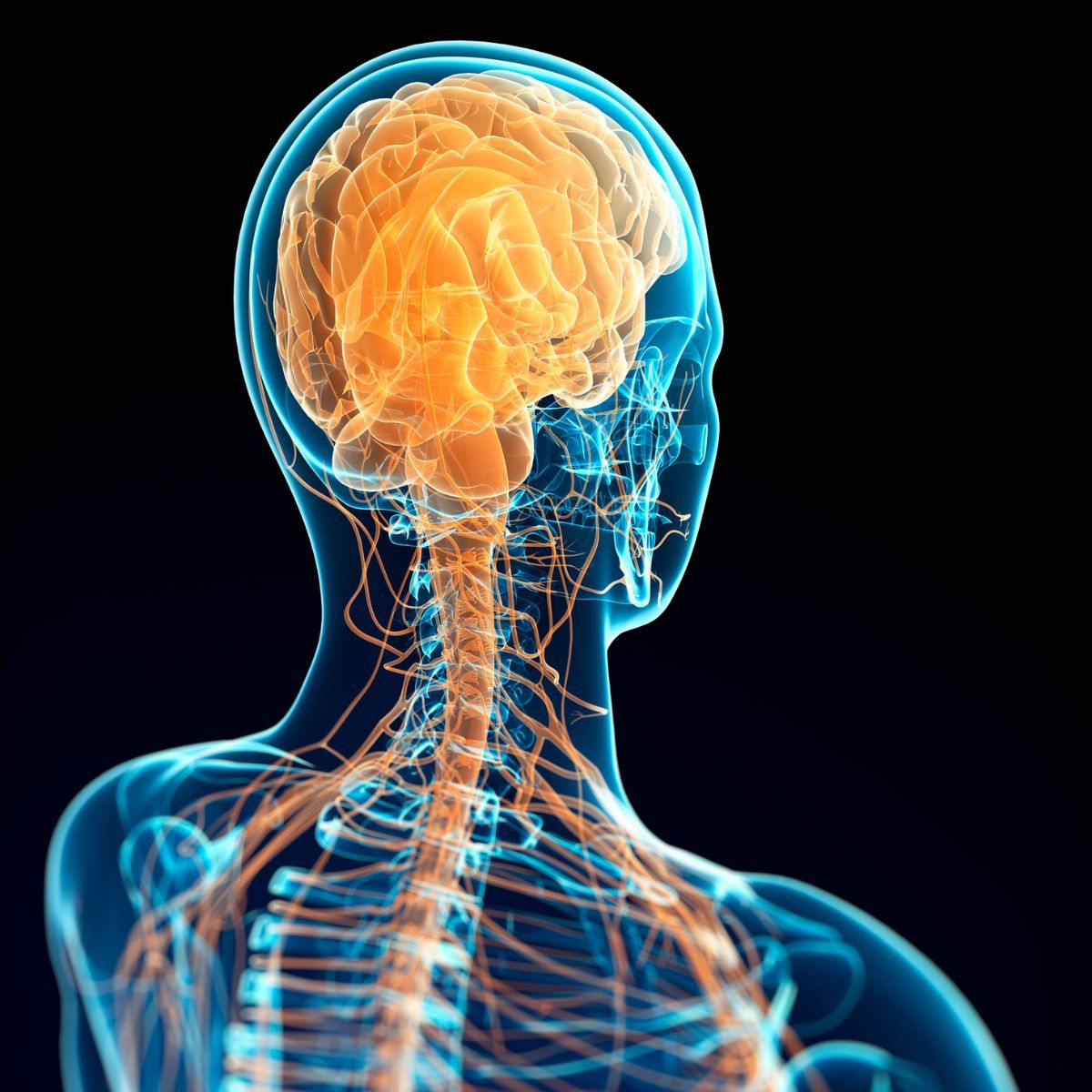The nervous system is an essential part of the human body that is responsible for controlling and coordinating the body's functions. It is a complex network of specialized cells, known as neurons, which transmit signals throughout the body. The nervous system is crucial to human existence because it controls every aspect of the body, including movement, sensation, cognition and behaviour. Without the nervous system, the body would not be able to function properly and sustain life.
What makes up of the nervous system
The nervous system is divided into two main parts: the central nervous system (CNS) and the peripheral nervous system (PNS). The CNS includes the brain and spinal cord, the PNS consists of nerves that connect the CNS to the rest of the body. The brain is the most complex organ in the human body and is responsible for coordinating all the body's functions. The spinal cord is a long, thin, tubular bundle of nerve cells and fibres housed in the spine that extends from the brain. It is responsible for transmitting signals between the brain and the entire body.
The peripheral nervous system is responsible for transmitting signals from the CNS to the rest of the body and vice versa. It’s divided into two main branches: the somatic nervous system and the autonomic nervous system. The somatic nervous system controls voluntary movements, such as walking or talking, while the autonomic nervous system controls involuntary movements, such as heartbeat, breathing, and digestion.
The roles of the nervous system
The nervous system plays a vital role in maintaining homeostasis, which is the body's ability to maintain a stable internal environment. The nervous system works in conjunction with other systems in the body, such as the endocrine system, to ensure that the body is functioning properly. For example, if the body is too hot, the nervous system will trigger the sweat glands to produce sweat, which cools the body down.
The nervous system is also responsible for sensation, which is the ability to detect changes in the environment. The nervous system receives sensory information from various receptors in the body, such as the eyes, ears, nose, and skin, and transmits that information to the brain. The brain then interprets that information and creates a perception of the environment. Without the nervous system, the body would not be able to sense or respond to changes in the environment, which would make it impossible to survive.
The nervous system also plays a crucial role in cognition, which is the ability to process information and make decisions. The brain is responsible for cognition and is the most complex organ in the human body. It is responsible for functions such as perception, memory, attention, language, and decision-making. Without the nervous system, the body would not be able to process information, learn, or make decisions. Simply put, the organ under your hat, your brain runs every single organ in your body.
Behaviour is another important function of the nervous system. The nervous system is responsible for controlling behaviour, which includes everything from basic reflexes to complex social behaviours. As a consequence, damage to certain areas of the brain can result in changes in behaviour. For example, injury to the prefrontal cortex can result in changes in decision-making and impulse control.
The nervous system is also responsible for the sleep-wake cycle. The brain contains a complex system of neurons that regulate the sleep-wake cycle. This system is responsible for controlling when we feel sleepy and when we feel awake. Without the nervous system, the body would not be able to regulate the sleep-wake cycle, resulting in sleep disturbances and other problems.
The connection between the nervous system and chiropractic
Chiropractic is a healthcare profession that focuses on the diagnosis, treatment, and prevention of mechanical disorders of the musculoskeletal system, particularly the spine. The nervous system plays a critical role in chiropractic care, as it is responsible for controlling and coordinating the functions of the body, including the musculoskeletal system.
Chiropractic care aims to restore proper alignment and function of the musculoskeletal system, particularly the spine, in order to reduce pain, improve mobility, and enhance overall health and wellness. This is achieved through a variety of manual techniques, including spinal adjustments, mobilization, and soft tissue therapies, which aim to improve joint mobility, reduce inflammation, and alleviate nerve irritation.
The nervous system is intimately connected to the spine, as the spinal cord and nerve roots are housed within the bony structures of the spine. Any misalignment or dysfunction of the spinal column can lead to nerve irritation or compression, which can result in a variety of symptoms, including pain, numbness, tingling, and weakness.
At Moorooka Chiropractic Centre, our chiropractors use a thorough evaluation process, including a detailed medical history, physical examination, and diagnostic imaging, to identify the underlying causes of musculoskeletal pain and dysfunction. By addressing these underlying causes, chiropractic care can help to restore proper function of the nervous system and improve overall health and wellness. Read here to learn more about what to expect at your chiropractic appointment with us.
